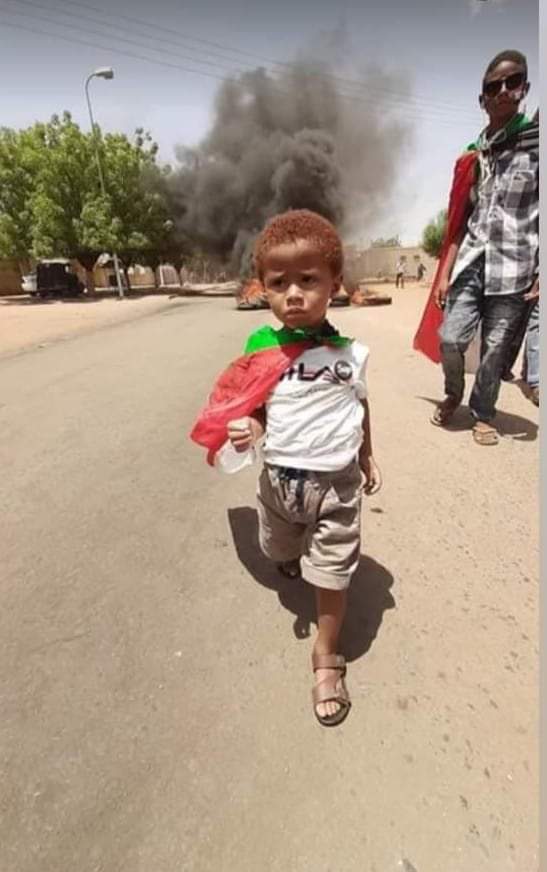The National Plan for the release, family tracing and reunification of Khalwas children (Quranic boarding schools) as young as five studying and living in the Khalwas across the 18 states of Sudan announced recently by NCCW and UNICEF is considered one of the major breakthrough in a legal systems that meet children’s protection and in accordance with the national legislation, customs, traditions, values and beliefs of the Sudanese people, in conformity with the laws, agreements, protocols and international norms relevant to children’s issues
The closure of the Khalwas and the evacuation of the children living in the crowded facilities without parental care is one of the strategies adopted to contain the spread of the coronavirus according to NCCW and UNICEF .
The Minister of Labor and Social Development, Lina Al-Sheikh, declared that 2020 is a year of childhood, calling for accelerating the achievement of the peace process.
“Our doors are open to all, and called for complementary roles and coordination between the relevant authorities to achieve the sustainable development goals in education and health.’’ This contributed to the raising numbers of violations of physical violence practices, pointing to their exploitation in begging and looting.
NCCW seeks through institutions concerned with children, confrontations and decisions to facilitate access to social, health, educational and cultural services, in order to affirm the role of the State in the development of the child in accordance with the Law on children
“The transitional government cannot afford this traditional system of religious education as it was for 300 years ago without major reform,” said Osman Abufatima Secretary General NCCW.
NCCW renewed the State’s commitment and attention children’s issues in health, improving the environment and quality of education, strengthening community and institutional protection, and achieving comprehensive protection and development for all children in the Sudan
NCCW asserted to the importance of creating the appropriate conditions to promote awareness of the protection of children’s rights in an educational, psychological and social environment that encourages initiative and innovation and opens the way for the Arab child to participate actively and provide equal opportunities to all children in Sudan and the Arab region.
NCCW is always concenrte on the importance of creating the appropriate conditions to promote awareness of the protection of children’s rights in an educational, psychological and social environment that encourages initiative and innovation and opens the way for the child to participate actively and provide equal opportunities to all children in the Arab region
According to NCCW, UNICEF this approach will consider all child protection measures including psychosocial support and gender-based violence interventions to include separated and unaccompanied children.
“The children inside these facilities are forced to remain there and do not receive a variety of education. The crowdedness in the Khalwas can affect children tremendously as they are more vulnerable and exposed to neglect, exploitation, even violence and do not receive suitable psychosocial support,” said UNICEF Acting Representative Mohamed Abderrahmane Ould Bouasria.
It is worth noting that Child rights include the right to survival, development, progression, protection against harmful effects, prevention from mistreatment and attempts to exploit them in any form and guarantee their full participation in the family, social life and culture.
It is important to identify their problems, needs and obstacles they face and work on diminishing them in order to give sudanese child the opportunity to be raised in the best circumstances that provides them education and health, and helps them to develop and create.
The Convention on the Rights of the Child signed and agreed upon in 1989 states the rights of each child should be respected without discrimination of any kind, the best interests of the child should be the primary consideration in all actions concerning children, children have the right to express their views freely and the views of the child should be taken into consideration, the child right to accessible healthcare, education, civil, social and legal services directly related to the child.
In 2010, the Sudan reported to the Committee on the Rights of the Child that “pursuant to the legislative framework in the Sudan, any convention ratified by the Sudan shall be considered part of the legal framework in the country, and any article in any law that contradicts it should be amended or eliminated, as the Interim National Constitution of the Sudan, 2005, stipulates in article 27, the Bill of Rights.”
The National Council for Child Welfare (NCCW) affirmed the Sudan’s commitment to all international and regional conventions and treaties in order to achieve the best interests of the children by promoting and activating national legislation, policies, strategies and programmes that protect children
NCCW renewed the call for the adoption of the year 2020 year for children in the Sudan and affirmed the commitment of the State, civil society leaders and national, regional and international organizations and institutions operating in the Sudan in children’s issues and raise awareness in order to become a priority for the comprehensive and sustainable protection, care and development of the Sudanese child
Executive Director of Journalists for Children Association Inaam Mohammed Al Tayeb has expressed JFC commitment to the principles and standards of handling child issues in the media built on transparency, citizenship and social justice and freedom to enhance equality, freedom of expression, credibility and subjectivity.
The media has a major role to play in promoting, maintaining and safeguarding children’s social, spiritual and moral rights and physical and psychological health, and working to achieve a media environment that is capable of protecting children and defending their rights . “Journalists for Children has supported children’s issues in coordination with relevant stakeholders and partners for the sake of child friendly media”, Inaam added .
Sudan adopted an inclusive vision for sustainable Development gender justice with the International community, and the year 2020 has been set to support the elimination of harmful habits such as Female Genital Mutilation, Child Marriage ,Child Soldiers and all means of violation against Children.









